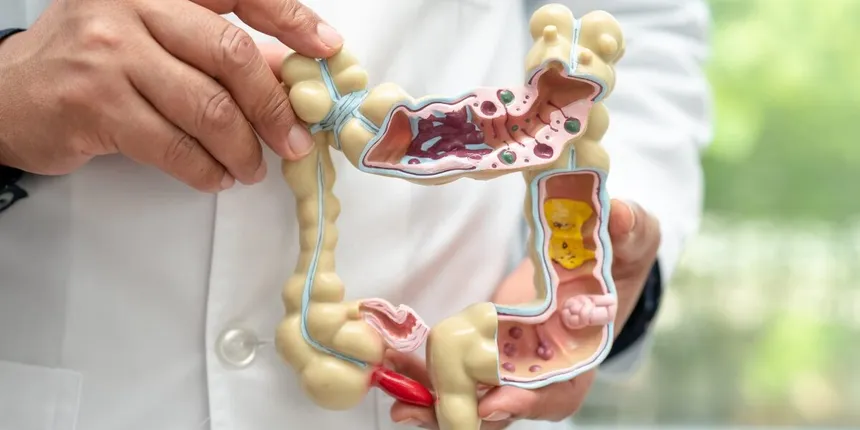The Importance of Gut Health in Ayurveda

In Ayurveda, gut health is considered the cornerstone of overall well-being. Known as the body’s “digestive fire” or Agni, gut health plays a vital role in maintaining balance between the mind, body, and spirit. Ayurveda emphasizes the importance of a strong digestive system for optimal health, energy, and longevity. In this blog, we’ll explore why gut health is so crucial in Ayurveda, how imbalances can lead to disease, and how to improve your digestive wellness through Ayurvedic principles.
Understanding Gut Health in Ayurveda
In Ayurvedic philosophy, gut health is central to sustaining life. According to Ayurveda, our bodies are composed of five elements—earth, water, fire, air, and ether. The balance of these elements is represented by Doshas: Vata, Pitta, and Kapha. When Agni (digestive fire) is functioning optimally, food is digested properly, and the nutrients are absorbed efficiently, providing the body with energy and vitality. On the other hand, weak Agni can lead to the formation of Ama, or toxins, which cause various illnesses.

There are four types of Agni in Ayurveda:
- Sama Agni: Balanced digestive fire that leads to perfect digestion and overall health.
- Vishama Agni: Irregular digestion, often seen in those with a Vata imbalance, resulting in bloating, gas, and indigestion.
- Tikshna Agni: Hyperactive digestion found in those with a Pitta imbalance, leading to acidity, heartburn, and loose stools.
- Manda Agni: Slow or weak digestion associated with Kapha imbalance, often leading to weight gain, lethargy, and sluggish digestion.
Maintaining a healthy gut and a balanced digestive fire ensures that food is properly processed, preventing the formation of toxins and supporting the body’s natural detoxification process.
Signs of an Imbalanced Gut in Ayurveda
An imbalance in gut health can manifest in various physical, emotional, and mental symptoms. Some common signs of poor gut health include:
- Bloating and Gas: A Vata imbalance can cause air to accumulate in the intestines, leading to discomfort.
- Acidity and Heartburn: Pitta imbalances may cause an overproduction of stomach acid, resulting in burning sensations in the stomach or chest.
- Constipation or Diarrhea: These are common signs of weakened digestive fire, often influenced by diet and lifestyle.
- Lethargy and Fatigue: When digestion is slow (Kapha imbalance), the body struggles to break down food efficiently, leading to tiredness.
- Skin Issues: Toxins accumulated due to poor digestion often show up as skin problems, such as acne, rashes, or dull complexion.
- Weight Gain or Loss: Improper digestion can cause unwanted weight changes depending on the type of imbalance in the doshas.
Ayurvedic Tips for Maintaining Gut Health
Ayurveda offers a holistic approach to restore and maintain gut health. Here are some practices that can help improve digestion and support overall wellness:
1. Eat According to Your Dosha
Each individual’s constitution or dosha determines their dietary needs. Eating foods that balance your dosha helps regulate digestive fire:
- Vata: Consume warm, moist, and cooked foods like soups, stews, and herbal teas.
- Pitta: Focus on cooling, mild foods like fresh vegetables, fruits, and dairy.
- Kapha: Choose light, dry, and spicy foods like steamed vegetables, lean proteins, and herbs.
2. Incorporate Digestive Herbs
Ayurveda recommends specific herbs and spices to boost digestion:
- Ginger: Known for its digestive benefits, ginger helps stimulate Agni and promotes the efficient breakdown of food.
- Turmeric: A powerful anti-inflammatory herb, turmeric aids in detoxifying the liver and boosting digestive function.
- Cumin, Coriander, and Fennel: These spices are often used in Ayurvedic cooking to reduce gas, bloating, and improve digestion.
3. Mindful Eating Practices
In Ayurveda, how you eat is just as important as what you eat:
- Eat in a Calm Environment: Avoid eating in stressful or distracting settings. Create a peaceful space to enjoy your meals mindfully.
- Chew Thoroughly: Properly chewing your food helps the digestive process by breaking down the food before it reaches the stomach.
- Eat at Regular Times: Consistency is key. Eating meals at regular intervals can help keep your digestive system in balance.
4. Hydrate with Warm Water
Ayurveda suggests sipping warm water throughout the day to aid digestion and flush toxins. Cold water can slow down Agni, so it’s best to avoid drinking cold beverages, especially during meals.
5. Use Herbal Supplements
Ayurvedic supplements like Triphala, a combination of three fruits (Amalaki, Haritaki, and Bibhitaki), help cleanse the colon and improve digestion. It also helps remove toxins (Ama) from the body, ensuring a healthy gut.
6. Daily Routine for Optimal Digestion
Ayurveda emphasizes following a routine, or Dinacharya, for maintaining digestive health. This includes waking up early, practicing yoga or meditation, and eating your meals at the same time each day. Additionally, going to bed early allows the body to rejuvenate and properly digest food.
Conclusion
In Ayurveda, gut health is seen as the foundation of overall wellness. A balanced digestive fire, or Agni, not only ensures proper digestion but also helps in maintaining physical, mental, and emotional health. By following Ayurvedic dietary and lifestyle practices, you can strengthen your gut, eliminate toxins, and promote long-term well-being.
As the ancient Ayurvedic saying goes: “When diet is wrong, medicine is of no use; when diet is correct, medicine is of no need.” Proper care of the digestive system is the first step to leading a healthy, balanced life.

